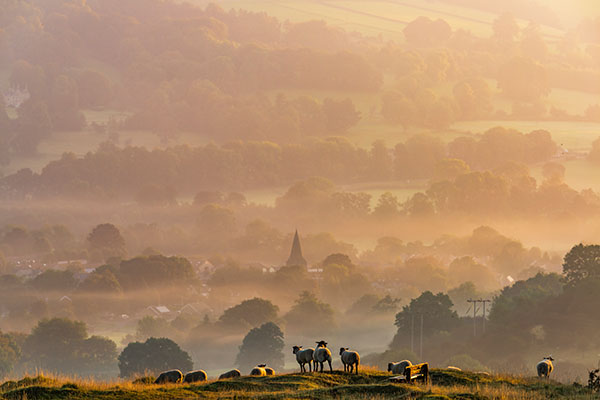Land use is not an aspect of policy that can be compartmentalised, parcelled away and deemed to matter only in certain places and to certain people. We all live with the choices over how land is used every day.
Over the last century waves of legislation have transformed land and our relationship to it: the public rights to roaming that enshrined in law the idea that the countryside belongs in some way to us all; agricultural policy which has subsidised forms of farming that have pushed nature from farms, and family farmers with it; the building of new towns and cities; the protection of national parks and areas of outstanding beauty; the creation of the green belt; and the Town and Country Planning Act which paved the way for contemporary legislation governing development.
Climate change and the rapid extinction of species demand that we update legislation and underpin it with a framework that sets out overall priorities for land, as well providing a mechanism for mediating disputes and encouraging uses of the land that provide multiple benefits. The prospect of setting an independent agricultural policy for the first time in decades provides additional impetus.
It is for this reason that the Food, Farming and Countryside Commission has chosen land as one of its major workstreams. At present decisions are made in silos; outputs of land such as food production and environmental benefits are treated as in conflict with one another; and there is no long-term vision for land.
Scotland already has a land use strategy. Wales has a spatial plan, which is currently being turned into a 20-year land use framework for Wales. Northern Ireland has a Regional Development Strategy and, when government was sitting, was developing a land strategy with a more environmental focus.
In England, meanwhile, though there are all manner of government initiatives and objectives which touch on land use, there is no overall framework which ensures these are aligned strategically and sets out an overall objective of land use for England – let alone a dynamic map of what the optimal use of land in different parts of England might look like.
To this end we commissioned Green Alliance to write a paper outlining the context within which a land use framework might operate.
It sets out the history of government attempts to approach land in a considered fashion. It then lays out existing government initiatives which touch on land use, before asking the fundamental question of what a framework for land use should look like in practice. It is a question which the Food, Farming and Countryside Commission is seeking to answer.
Related articles
-
Finding the road to renewal
Sue Pritchard
New poll by FFCC and the Food Foundation finds 85% of people want to see some of the personal or social changes they have experienced during Covid-19 continue afterwards, whilst just 9% want everything to go back to how it was before the pandemic.
-
Counting on recovery: collecting the data to inform policy post-crisis
Tom MacMillan
We’re starting to gather evidence on community responses to the pandemic, to help shape post-crisis policy. If you are too, let’s team up.
-
The Future is Here
Sue Pritchard
In a rapidly changing world, we need a stubborn optimism for the future.



Be the first to write a comment
Comments
Please login to post a comment or reply
Don't have an account? Click here to register.